 Darcy and Elizabeth get it sorted out
Darcy and Elizabeth get it sorted out “Implacable resentment is a shade in a character." [says Elizabeth] "But you have chosen your fault well. I really cannot laugh at it. You are safe from me.”
“There is, I believe, in every disposition a tendency to some particular evil—a natural defect, which not even the best education can overcome.”
“And your defect is to hate everybody.”
“And yours,” he replied with a smile, “is willfully to misunderstand them.”
And even when pride and prejudice are cleared away, there still a little delay caused by residual embarrassment and doubt. Once they are happily engaged, Elizabeth asks Darcy about it:
“What made you so shy of me, when you first called, and afterwards dined here? Why, especially, when you called, did you look as if you did not care about me?”
“Because you were grave and silent, and gave me no encouragement.”
“But I was embarrassed.”
“And so was I.”
“You might have talked to me more when you came to dinner.”
“A man who had felt less, might.”
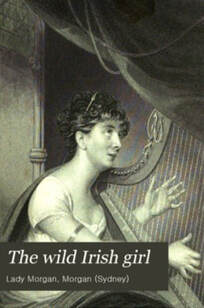
In previous posts I talked about the plot tropes of death and coincidence. Death was useful for starting a book with an orphaned heroine, and coincidence was handy for wrapping things up at the end. In between death and coincidence, there is misunderstanding.
There were many ways of keeping an 18th century hero and heroine apart, of course – tricks such as purloined letters, untoward circumstances such as cruel guardians, secrets such as a prior engagement (as with Sense & Sensibility). But often, the plot called for misunderstanding. In Clarentine, as I’ve mentioned, the Big Problem is that Clarentine and the hero are kept apart by the machinations of an attractive widow. The misunderstanding is cleared up easily, but not quickly. In Evelina, the inexperienced heroine makes social blunders which cast her in a bad light – but once the hero gets to know her better, he realizes she is a sweet and virtuous girl.
Horatio, the hero in The Wild Irish Girl (1807), sees Glorvina, the girl he loves, reading a letter and he assumes the worst: “The ardent kiss impressed upon the senseless paper, which thy breast enshrined!!! Was the letter of a friend thus treasured? When was the letter of a friend thus answered with tears, with smiles, with blushes, and with sighs? This, this is love’s own language… " Horatio fears Glorvina loved someone else before him: “What! I to receive to my heart the faded spark, while another has basked in the vital flame! I contentedly gather this after-blow of tenderness, when another has inhaled the very essence of the nectareous blossoms? No!”
It's all a big misunderstanding of course, which leads to more purple prose and a dramatic wedding interruption scene where the truth is revealed. Luckily Glorvina, who faints repeatedly and runs mad, has a "fine constitution" and she recovers for her happy ending.
In Camilla, the hero’s friend Dr. Marchmont poisons the hero’s mind against the heroine. Jane Austen laughingly refers to Camilla in a letter to her sister: "Give my Love to Mary Harrison, & tell her I wish whenever she is attached to a young Man, some respectable Dr. Marchmont may keep them apart for five Volumes."
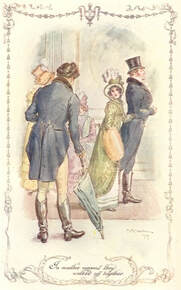
I’ve always been struck by the passage in Persuasion where Anne is musing on the likelihood that Wentworth does love her, after all: "She tried to be calm, and leave things to take their course, and tried to dwell much on this argument of rational dependence: --'Surely, if there be constant attachment on each side, our hearts must understand each other ere long. We are not boy and girl, to be captiously irritable, misled by every moment's inadvertence, and wantonly playing with our own happiness.’" It's as though Austen has considered, but rejected, spinning out any further misunderstandings between these two rational adults.
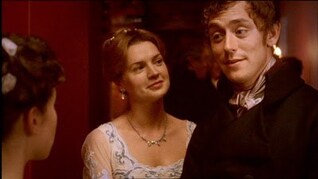
Austen strove to avoid clichés and improbabilities in her novels. She uses misunderstandings, but she doesn't extend them to implausible length. No Austen heroine behaves with the maddening obtuseness of Clarentine, for example. There is a comic misunderstanding in Sense & Sensibility when Mrs. Jennings briefly thinks that Colonel Brandon is proposing to Elinor. Marianne hopes that some misunderstanding can explain Willoughby's behavior, but she can't deceive herself for long. [Update: I had forgotten the long misunderstanding which persists between Sir Thomas Bertram and Fanny Price, but it's not a romantic entanglement. She can't explain why she won't marry Henry Crawford. It's a good realistic example of a misunderstanding arising out of their personalities and the situation they're in.]
We find self-delusion more than misunderstanding in Austen's novels. Edmund Bertram deludes himself that Mary Crawford can't possibly be as cynical and worldly as she appears to be. Marianne deludes herself that Willoughby is the ideal romantic hero, when the real hero, Colonel Brandon, is right under her nose. And Emma deludes herself over Mr. Elton's marital intentions. She comes out of that debacle to set up another misunderstanding between herself and Harriet over which admirer of Harriet's they have agreed not to talk about.
This capacity for self-delusion, John Mullan suggests, was an innovation by Austen. It made her heroines more real, more three-dimensional, more believable, than heroines who were "pictures of perfection."
It seems I have some more notes about 18th century heroines to share. Were there some heroines who were actually rational creatures?
Previous post: Coincidence Next post: Two pictures of perfection
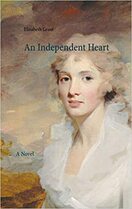
"He was her brother, the letter ran." After the Ball (1890s) was the first pop song mega hit. It was about a man who breaks off with his sweetheart after seeing her kiss a man at ball. The sibling mistaken for lover.
In my novel A Contrary Wind, I admit that I made use of the purloined letter. Several, in fact. Click here for more about my books.
Update: I repeat and amplify my remarks about Persuasion here, in relation to the 2022 Netflix movie.
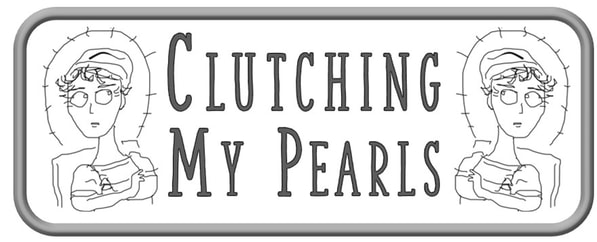
 RSS Feed
RSS Feed